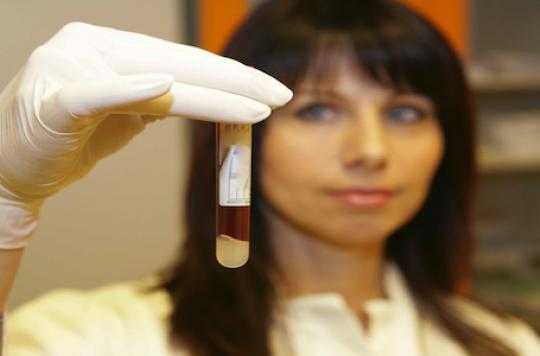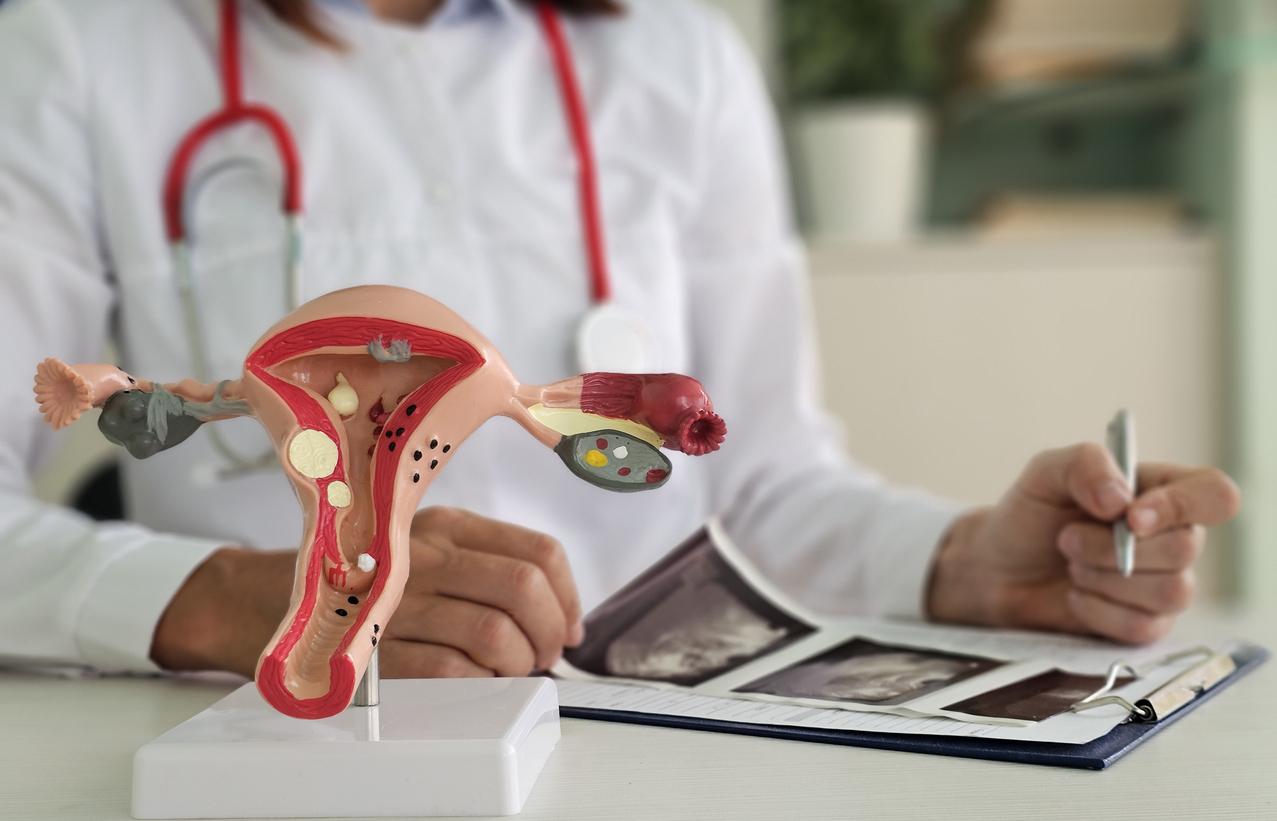500 fetuses die each year as a result of amniocentesis. A simple blood test can prevent this invasive act. Available in Germany, this test is being tested in France

In France, screening for Down’s syndrome is done in the first trimester of pregnancy. It is reimbursed by social security and consists of a strategy that combines a blood test for certain markers and ultrasound measurements of the neck of the fetus. A method that is offered to all pregnant women, regardless of their age. When the risk of the fetus being affected exceeds 1/250, specialists recommend doing an amniocentesis. An invasive examination, which until now was the only one that could determine with certainty whether the fetus is a carrier of this chromosomal abnormality. A medical act that causes miscarriages in 0.5 to 1% of cases.
An alternative to amniocentesis
First in the United States and since this summer in certain European countries such as Germany, a new screening test has appeared on the market. An alternative to amniocentesis according to international specialists, both reliable and above all safe for the fetus as for the pregnant woman.
A crucial security issue, when we know that in our country more than 500 fetuses die each year following a miscarriage caused by an amniocentesis and 95% of them do not have Down’s syndrome.
From a simple blood test from the mother, specialists are able to isolate and analyze fetal DNA in the laboratory and thus determine whether the unborn baby is affected or not. In France, for the moment this test is not marketed. The Ministry of Health should not delay in seizing the High Authority of Health to study the question. In the meantime, on the side of scientists enthusiasm is de rigueur. A study is underway at Necker Hospital in Paris. Already carried out on 300 women, it has demonstrated the effectiveness of this non-invasive method. The authors are now waiting to be able to offer it to all women at risk.
Listen to Prof. Yves Ville, head of the obstetric gynecology department at Necker hospital: “ We have already done this on 300 women at risk, in all cases the test was correct, in our study it is 100% effective, it is in accordance with the 5 other studies already published. “
On the occasion of the presentation of the activity report of the Biomedicine Agency, its director, Emmanuelle Prada-Bordenave, confirmed this Friday that this new test was currently being tested in France and that two test protocols were in progress.
However, even before it is authorized in France, some associations of parents of children with Down’s syndrome are already showing reservations about this new test. This is also the case for the Jérôme Lejeune Foundation and its president. Jean Marie Le Méné also encourages the public authorities to ask themselves certain ethical questions before giving a possible green light. “The announced progress is based on a principle of discrimination which considers that the life of normal people is worth more than that of abnormal people. Claiming that screening for trisomy will soon be less dangerous therefore means that death is only dangerous for healthy babies, ”he explains in a press release.
Listen to Jean-Marie Le Méné, President of the Jérôme Lejeune Foundation: “ I find that to say, rest assured, we will only screen disabled people and then normal fetuses we leave them alone, is to base all the reasoning on a principle of discrimination.. “
Another argument put forward by the President of the Jérôme Lejeune Foundation is the economic argument. “We have to wonder about the place we give to the financing of this type of test which aims to stop the births of children with Down’s syndrome. The more money the public authorities spend on screening, the less money is spent on research into therapeutic prospects, ”says Jean-Marie Le Méné.
In the camp of “anti-new tests” against trisomy, some also evoke the very high price of this screening if it should one day be reimbursed by social security. In Germany, it would have been marketed at around 1250 euros. For Professor Yves Ville, the price of the test in France, as he currently practices it as part of the study he is piloting at the Necker hospital, is much lower and above all it will drop very quickly. “The cost price today is 400 euros and we can estimate that once we do more, the price will decrease considerably, very soon it can be done for 200 euros. Currently, the overall price of an amniocentesis is 500 euros ”.
Listen to Prof. Yves Ville : ” As long as the test works, the next step is to do a study where the results are given to the patients and where they can decide not to do the amniocentesis again. If the health insurance finances this test to the tune of 400 euros, this study can be carried out with a minimal budget. “
.















